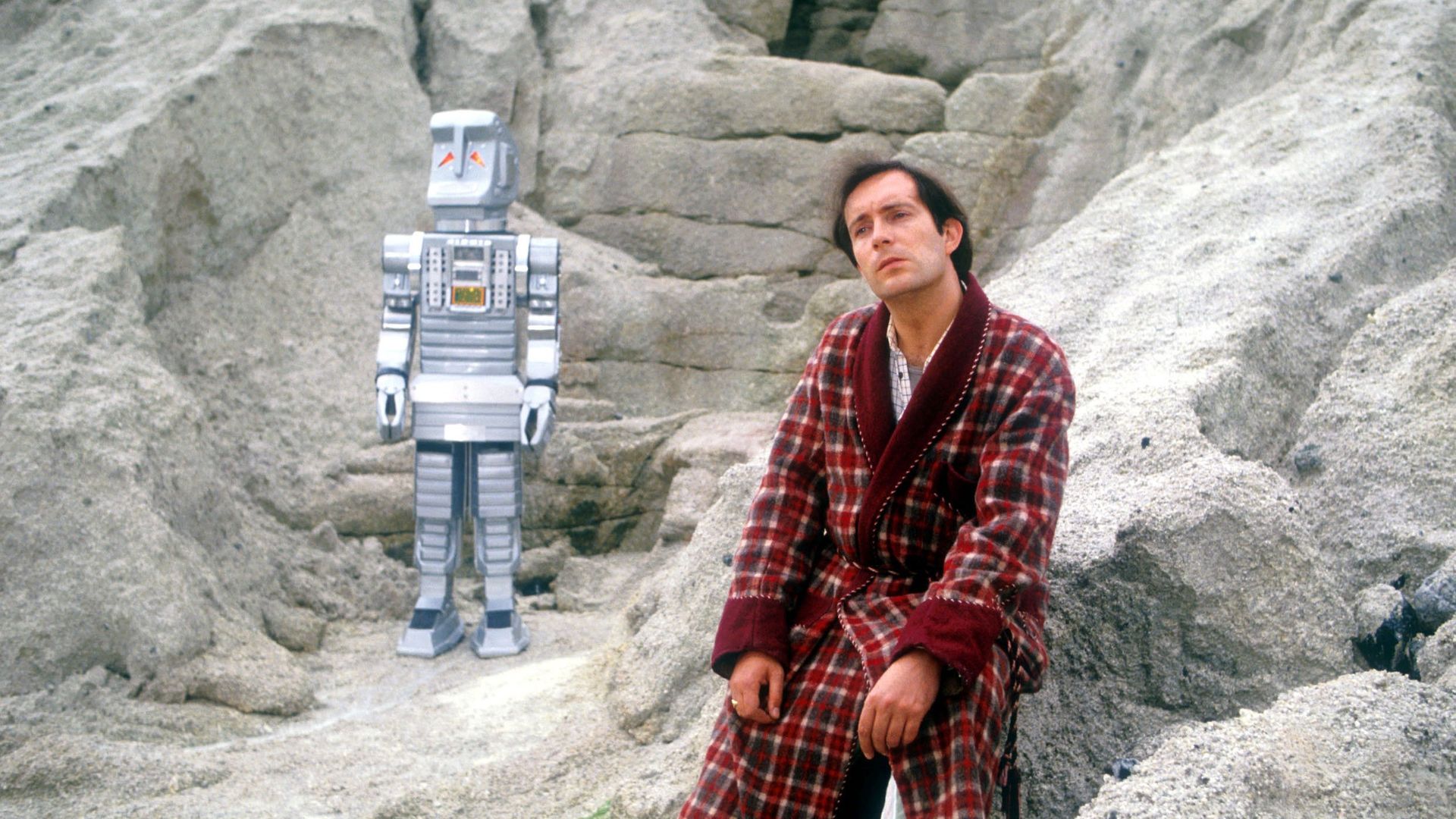
When comedy science fiction writer Douglas Adams imagined a device that could instantly translate any language, he saw it as a small, yellow, telepathic fish that you put in your ear.
The Babel fish “excretes into the mind of its carrier a telepathic matrix formed by combining the conscious thought frequencies with the nerve signals picked up from the speech centres of the brain which has supplied them”. In other words, it takes words in one language and poops them out in another, straight into your brain.
It’s as good an idea as any, given the difficulty of real-time instant translation, and one which the translation and technology industry has been enthralled with since Adams’ novel, The Hitchhiker’s Guide to the Galaxy, was published in 1979.
Less than two decades later, AltaVista launched an online translation tool called babelfish, which was eventually purchased by Yahoo. It stuck around until 2012 when it was replaced by Microsoft Bing’s translation service, but the Babel fish has lingered firmly in popular culture as shorthand for ‘the ultimate translation solution’.
Technology has tried really, really hard to make the Babel fish a reality, albeit by less fishy and psychically intrusive means. But so far, some of the obstacles in creating a universal translator have been too big to scale.
One of the biggest difficulties in translation is not, as you might expect, getting the software to understand your words (speech-to-text artificial intelligence [AI] is getting more accurate by the day, although I have noticed that my Brummie accent causes errors in transcription software that my Home Counties interviewees’ accents don’t trigger).
It’s that words are not the entirety of communication. Context, culture, history, even tone of voice are as important as the words themselves, and that’s not something computers are very good at handling. Communication can be as individual as humans are, which is why the best translation is done by brain power.
Let’s take the work of one of Britain’s most famous translators, Anthea Bell, as an example. Along with Derek Hockridge, her work translating the much-loved Asterix comics is as important to English readers as the art and writing of Goscinny and Uderzo. Indeed, it forms part of the writing.
For example, in French, the word melon means the same as in English, the fruit. But when the book Asterix in Britain was published in 1965, a ‘chapeaux melon’, meant a bowler hat, as worn by the typical British gentleman. It was a poke at British culture, but not directly translatable because we Brits don’t compare bowler hats to melons.
In the drawing, a grocer character is holding half a melon and arguing with a bowler-hatted Brit, while the dialogue makes use of the ‘chapeaux melon’ pun. What was Anthea Bell to do? She couldn’t change the artwork, so she needed to find an alternative pun. She changed the angry grocer’s dialogue to “OH! SO THIS MELON’S BAD IS IT?”, while the very snooty customer replies with a phrase beloved of the British upper classes, “rather, old fruit!”.
You may groan at the pun, but it perfectly illustrates the art of translation and the cultural differences that make it near-impossible to give accurate interpretations of speech in real time.
A more modern example can be found in any smartphone, if you have an accent or dialect that differs from the Queen. To experiment, I opened the translate app on my iPhone and said, “let’s do a gambole down the gulley, then eat a cob”. The text on the screen appeared as “let’s do a camel down the galleon I need to come”.
It then perfectly happily translated this into French. When I tried again, it recognised ‘cob’ but interpreted it as sweetcorn, which is definitely not what I wanted. So even if I can see on the screen that it’s heard the English right, unless I already speak the language it’s translating to, I don’t know if it’s given the correct translation.
For non-Brummies, what I actually proposed was a forward-roll down an alleyway followed by a crusty bread bap. What I’ve done there is translate English to other English. Both are correct, but the app doesn’t yet speak Brummie. Voice recognition struggles with accents (and there is some evidence it even struggles with gender, as most are trained on male voices), and has absolutely no clue when it comes to colloquialisms, slang, regional dialects, or anything outside of a slowly-spoken, culturally-homogeneous, dictionary-perfect crystal clear delivery.
It’s still early days and the technology is still impressive, but it is very far from real-time translation for ordinary speech.
And this stuff really matters. In October 2020, Amazon’s launch in Sweden was marred by embarrassing AI translation errors. The word valdtakt, which means ‘rape’ in Swedish, was used on several products instead of raps – the correct Swedish word for a plant. Some product descriptions used a Swedish word for male genitals, instead of the word for rooster, and a frying pan was listed as a product for women.
In 2017, Emily Wilson became the first woman to translate Homer’s Odyssey into English. Her sex matters, as she acknowledged herself, because sex matters to culture and to literature, both of which have historically been dominated by men. Her translation opens with “tell me about a complicated man”, although she says “straying husband” would have been a valid translation too. This is the interpretation part of translation, and it unlocks Homer for new readers.
The same year, Angela Merkel prompted a row, for what was perceived as a dig at Donald Trump via a reference to Hillary Clinton’s “deplorables”. “You are familiar with the American position, you know that unfortunately — and I deplore this — the United States of America left the climate agreement”, Merkel was translated as saying by CNN and others.
It kicked off, which was a waste of everyone’s time and diplomatic energy because what she actually said could just as well (or some might argue, more accurately) be translated as “regrettably”. Bias – whether that’s in AI trained on the speech of Western university-educated white men, or the preferences of a human – can cause serious problems.
More recently, the American poet Amanda Gorman’s Dutch publisher made headlines after announcing that author Marieke Lucas Rijneveld would translate Gorman’s book of poetry. Gorman is black, but Rijneveld is white. She withdrew from the job after an outcry, and the publisher committed to hiring a black translator.
If a poet is writing about racism then a translator who has experienced racism is likely to have a different perspective, and potentially a different choice of words or concepts in the translation, than one who hasn’t. That shouldn’t be controversial, and diversity in translation is clearly as important as diversity in writing, or in speech, because interpretation is a factor. But technology is dominated by white men, and so translation AI is skewed towards their bias, preferences, and experiences.
While there are some incredible real-time translation devices available, including in-ear speakers with mics that pick up your words and translate them to a paired device in someone else’s ear, the technology is still limited to homogeneous words and concepts. To use the technology, many of us first have to translate our native speech into an approved version before that can be translated to another language, stripping us of our individuality and expression.
It will get better, but the Babel fish ideal of perfect real-time translation (which Douglas Adams joked would end in “more and bloodier wars than anything else in the history of creation”) needs to move away from its current cultural defaults.
Being translated is not the same as being understood, and there is no such thing as universal translation because there is no such thing as universal culture. A translation device that knows this and factors it in, well, now you’re talking my language.
What do you think? Have your say on this and more by emailing letters@theneweuropean.co.uk










